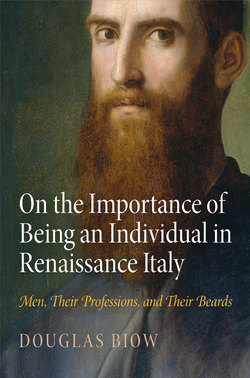On the Importance of Being an Individual in Renaissance Italy

Реклама. ООО «ЛитРес», ИНН: 7719571260.
Оглавление
Douglas Biow. On the Importance of Being an Individual in Renaissance Italy
Отрывок из книги
ON THE IMPORTANCE
OF BEING AN INDIVIDUAL
.....
I close with a reflection, but this time not a personal one.
The year is 1510. Paolo Cortesi’s De cardinalatu (On Being a Cardinal) appeared in print, shortly after the author’s death, in a still incomplete state. Roughly three years later Machiavelli composed Il principe, and then, in 1521, he published his less well-known but still seminal L’arte della guerra (The Art of War), the only book he wrote that ever appeared in print in his own lifetime.10 Broadly speaking, these three books, so different in outlook, rhetorical strategies, and style, addressed two key areas of interest in the Italian Renaissance that this study does not examine in any detail but that we would do well to consider briefly before turning to matters related to techne, ars, and arte in Part I. For two extremely important ways that men made themselves into conspicuous individuals in the period while also participating in male group identities that they sought to exceed was by rising in the church hierarchy and being great military leaders. Cardinals, to be sure, sought to enrich themselves, acquire honor, and assist the papacy in creating the state—in this instance the church—as a major temporal power that would endure in time, while condottieri sought to excel in the art of military affairs, which was one of the great master arts of the Italian Renaissance and certainly a foundational art that Machiavelli deemed absolutely necessary for the prince to master in order to succeed.11 Visual artists, of course, were routinely employed to highlight not only the corporate but also the individual achievements of great cardinals and military men. They pictured these men in a manner that revealed how their accomplishments, honor, status, wealth, and power depended upon their affiliations with all sorts of activities that men typically and collectively engaged in. But they also characterized them as lone, sometimes heroic individuals, even as we are made cognizant of their indebtedness to various communities, customs, and sodalities.
.....